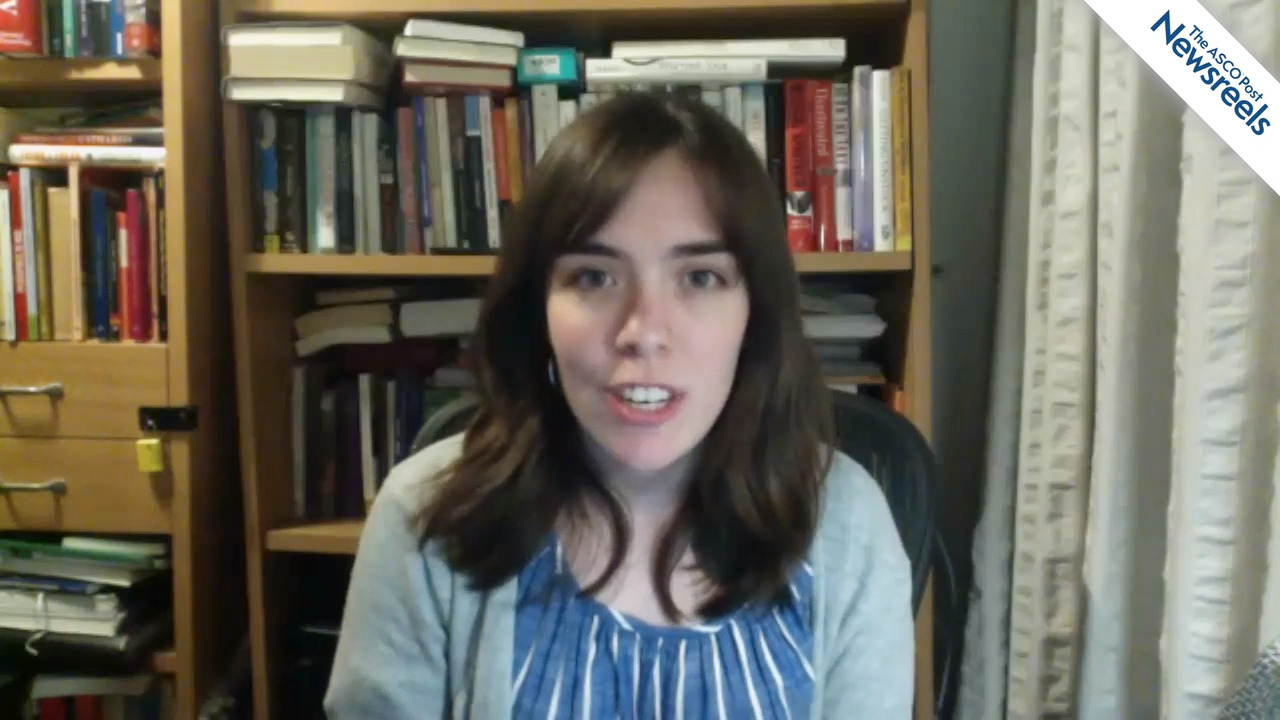Nancy U. Lin, MD, on Metastatic Breast Cancer: Tucatinib, Trastuzumab, and Capecitabine
ASCO20 Virtual Scientific Program
Nancy U. Lin, MD, of Dana-Farber Cancer Institute, discusses the HER2CLIMB study of patients with previously treated HER2-positive metastatic breast cancer that had metastasized to the brain. Adding tucatinib to trastuzumab and capecitabine doubled the intracranial response rate and reduced the risk of death by nearly half, compared with trastuzumab plus capecitabine (Abstract 1005).
The ASCO Post Staff
Ursula A. Matulonis, MD, of Dana-Farber Cancer Institute, discusses three important studies focusing on newer therapies for patients with recurrent platinum-sensitive, platinum-agnostic, and advanced recurrent ovarian cancers (Abstracts 6003, 6004, and 6005).
The ASCO Post Staff
Professor Lourdes Gil Deza, of the Instituto Oncológico Henry Moore, Buenos Aires, discusses her findings on the shortcomings of medical training when it comes to treating transgender patients, and the need to deepen clinical and communication skills to assist this population (Abstract 11002).
The ASCO Post Staff
Nirav Niranjan Shah, MD, of the Medical College of Wisconsin, explores whether autologous transplantation, in patients with relapsed diffuse large B-cell lymphoma who achieve only a PET/CT-positive partial remission, is appropriate in the era of CAR T-cell therapy (Abstract 8000).
The ASCO Post Staff
Mikkael A. Sekeres, MD, of the Cleveland Clinic, discusses data from a phase II study of pevonedistat plus azacitidine vs azacitidine alone in patients with higher-risk myelodysplastic syndromes, chronic myelomonocytic leukemia, or low-blast acute myeloid leukemia (Abstract 7506).
The ASCO Post Staff
As Thomas Powles, MD, PhD, of Queen Mary University of London, prepares to deliver his late-breaking presentation at the ASCO20 Virtual Scientific Program (LBA-1), he talks with Christopher Sweeney, MBBS, of Dana-Farber Cancer Institute, about current therapy: PD1/PDL1 inhibition in second-line treatment and as monotherapy in the first-line setting, as well as the concept of maintenance switch.





